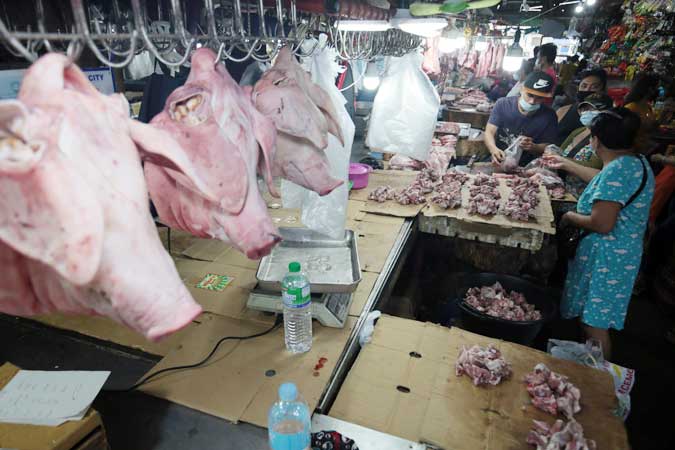Inflation seen to remain elevated throughout Q2

DESPITE the slight easing in March, inflation is expected to remain elevated in the second quarter with the lifting of the price caps on some meat products and rising global commodity prices, analysts said.
“We currently forecast Philippines inflation to average 4.0% over the course of 2021 but note inflation will generally remain more elevated in the first half of 2021,” Michael Langham, senior Asia country risk analyst for Fitch Solutions, told BusinessWorld in an e-mail.
“Food prices will continue to apply upward pressures and supply-chain disruptions externally are being aggravated by the disruptions to logistics in the Philippines caused by COVID-19 (coronavirus disease 2019) containment measures,”
The consumer price index (CPI) rose 4.5% in March, breaching the central bank’s 2-4% target for a third straight month but easing from the 4.7% in February, the Philippine Statistics Authority reported on Tuesday. The slight easing was attributed to slower increase in food prices.
The lifting of the price ceiling on selected meat products and the continued African Swine Fever (ASF) outbreak will likely cause an uptick in food prices and put upward pressure on the broader CPI in the next few months, according to Katrina Ell, senior Asia-Pacific economist at Moody’s Analytics.
The 60-day price ceiling on select pork and chicken products in Metro Manila ended on April 8.
“Elevated inflation comes at a particularly unfortunate time for the Philippines economy, which is grappling with localized COVID-19 outbreaks, subsequent restrictions and a sluggish vaccine rollout,” Ms. Ell said in an e-mail to BusinessWorld.
“Higher prices for key consumer goods erode purchasing power and put pressure on households that are already being strained,” she added.
Ms. Ell said policies that could help farmers rebuild pig stocks once ASF is better contained will help curb the price spike.
The central bank expects inflation this year to reach 4.2% before easing to 2.8% in 2022.
“To bring inflation down, authorities could seek to implement tax cuts and supply-side support measures — although the latter will have a lagged effect. However, we maintain the view that policy makers will see these inflationary pressures as temporary and accept that price growth may run hotter than targeted in the near term, focusing policies on supporting an economic rebound,” Mr. Langham said.
The Bangko Sentral ng Pilipinas (BSP) has kept the key policy rate at a record low of 2% in March, citing the need for a continued accommodative stance until the economy’s recovery becomes more solid. The central bank has assured it will act should second-round effects of inflation such as higher wage and transport hikes become more pronounced.
BSP officials have said non-monetary measures will better address inflation induced by low supply in some food commodities. — Luz Wendy T. Noble
